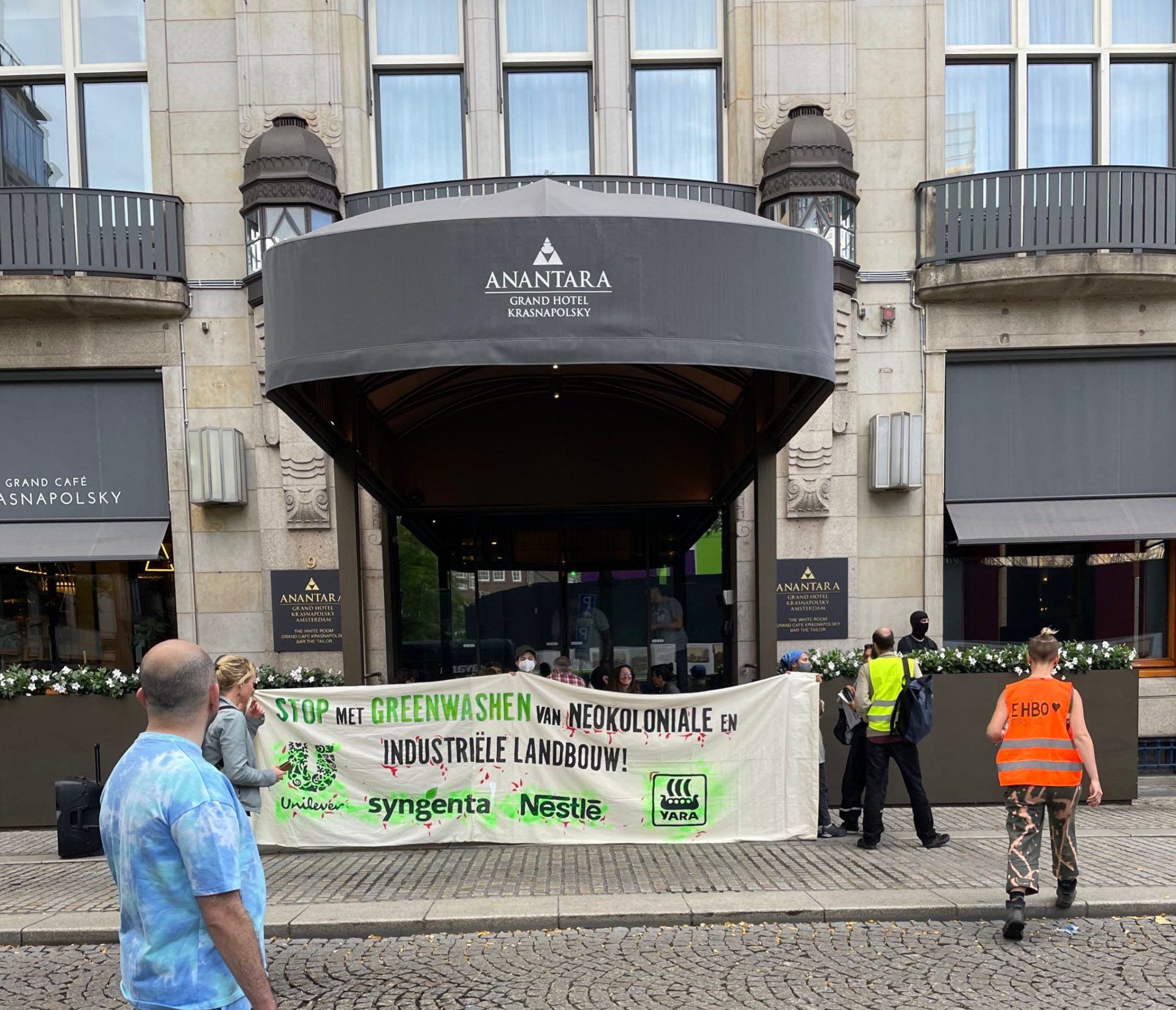- The Regenerative Agriculture and Food Systems Summit in The Netherlands faced protests and accusations of greenwashing on its opening day in Amsterdam this week.
- Attendees were momentarily unable to enter the conference in Wednesday as protestors “glued themselves to the entrance” of the Krasnapolsky Hotel in Dam Square, one attendee told AFN.
- Protestors took issue with some of the event’s key sponsors, which included global food business Nestle, fertilizer and ag inputs company Yara, and global agribusiness company Syngenta, among others. Protesters issued a statement saying: “These companies pretend to lead the transition to a more resilient and equitable food system, but they are primarily at the root of our interconnected social, climate, environmental and health crisis.”
- Extinction Rebellion was one of the groups involved and said that the summit provided a platform for multinationals to “deliberate how they can further greenwash their polluting and neocolonial practices,” according to Natural News Desk.
Why it matters
Regenerative agriculture, a method of farming that aims to improve land and soil health as it is farmed — through practices such as cover cropping, rotational grazing and use of natural fertilizers and pesticides — has been around for years. In fact, indigenous communities have followed its principles for centuries. In the investment sector, regenerative farming funds were first launched at the start of the 2010s, but only in the last three to four years has the term catapulted into the mainstream of the agrifood industry.
It’s still early days in the understanding of the positive impacts of the movement, but there are several examples that point to its ability to sequester carbon dioxide from the atmosphere and thus be a solution to global warming.
In the past two to three years, large agrifood corporates have made various commitments to transition farmland to regenerative agriculture. These moves have raised some eyebrows along with questions about their motives and varying accusations of greenwashing and using the movement as a marketing tool or for ESG considerations. There have also been concerns that farmers are being left out of the conversation and protestors at the event complained that farmers were being made to pay $1,000 for a conference ticket.
While some corporates declined interview requests about the progress of their regenerative commitments, PepsiCo spoke to us last month detailing the extent of its regenerative acreage.





